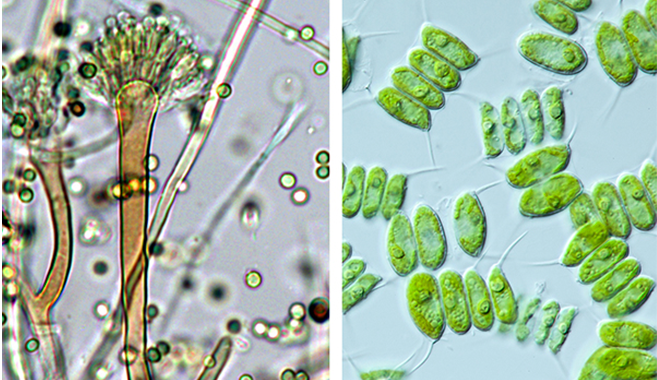Overview

The Fungal & Algal Program explores the vast diversity of fungi and algae to unlock their potential for bioenergy, environmental sustainability, and bioproducts. By sequencing and analyzing the genomes of these organisms, the program investigates the biological mechanisms that enable fungi and algae to play a vital role in carbon cycling, biodegradation and biogeochemistry. This research helps translate their genomic potential into practical applications, including sustainable biofuels, biomaterials, natural products, and environmental solutions, fostering a bioeconomy powered by nature’s resources.
Resources and Tools

The Mycocosm web portal provides data access, visualization, and analysis tools for comparative genomics of fungi. Mycocosm enables users to navigate across sequenced fungal genomes, and to conduct comparative and genome-centric analyses of fungi and community annotation.

Phycocosm is a comprehensive resource hub that provides access to publicly available sequenced algal genomes and genome annotations generated by the JGI and by others. The web portal allows users to navigate these genomes and conduct comparative and genome-centric analyses of algae, while also encouraging community engagement and data exchange.




